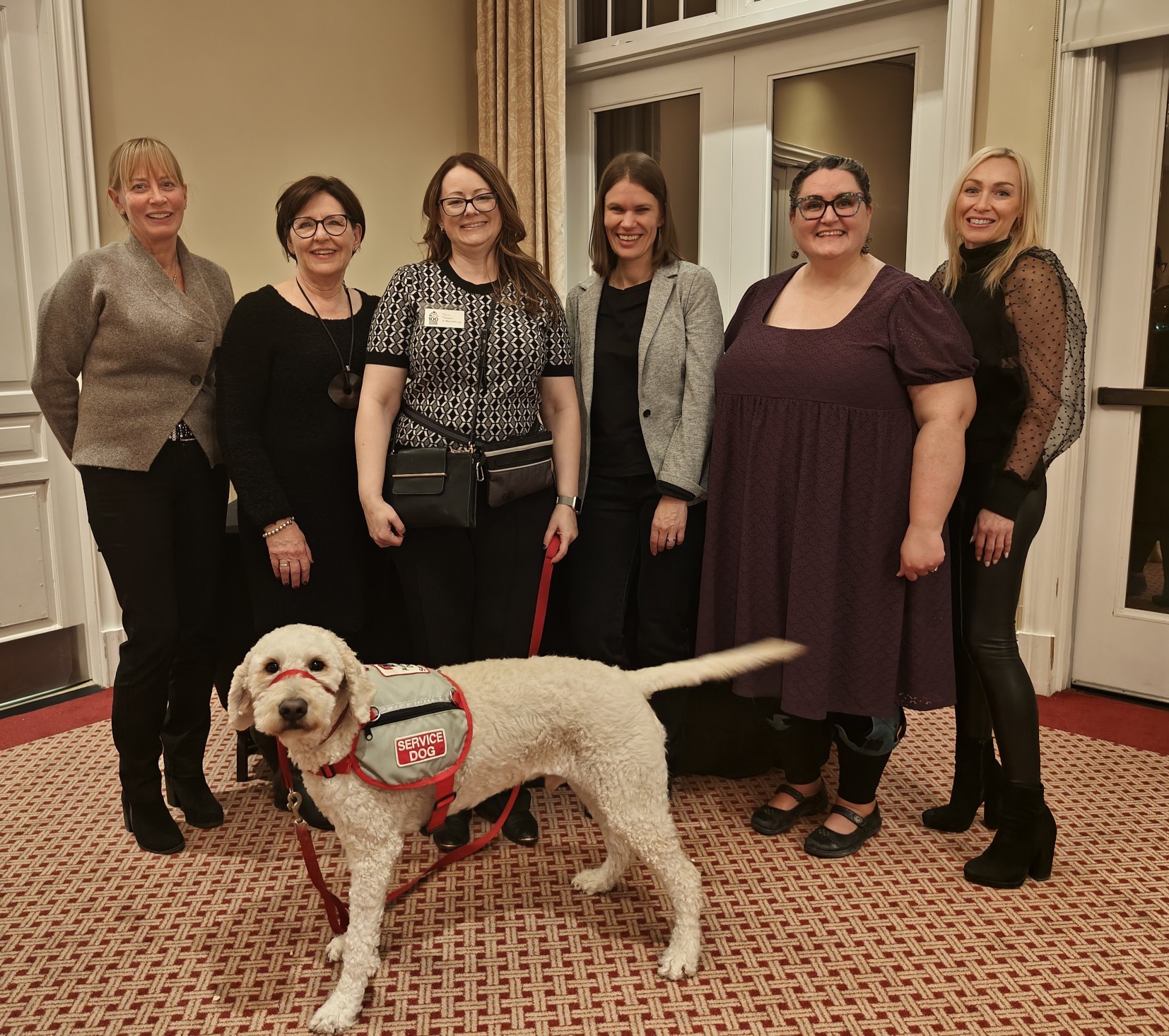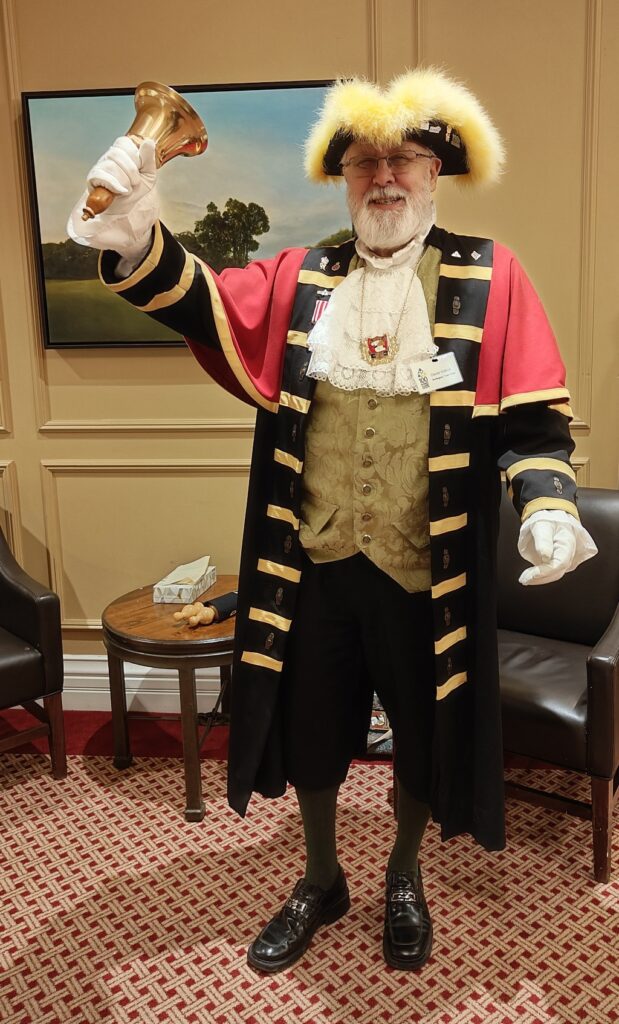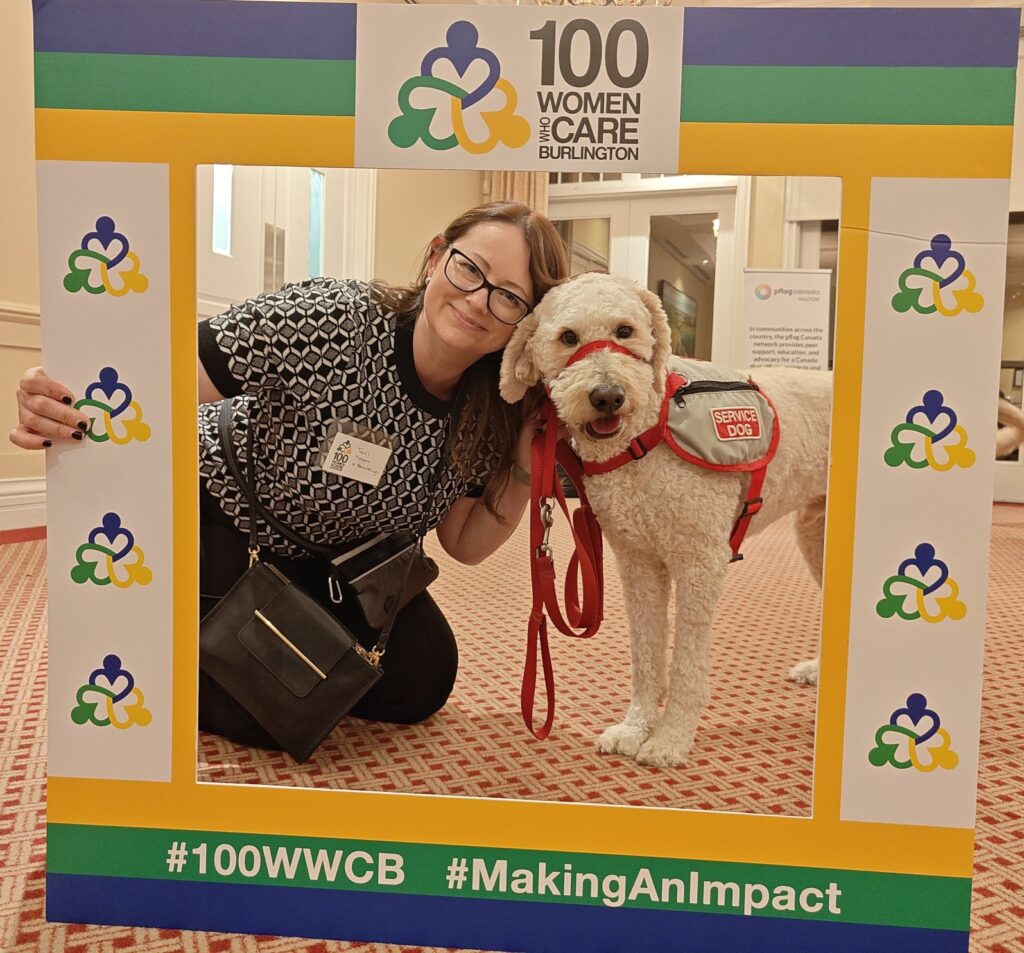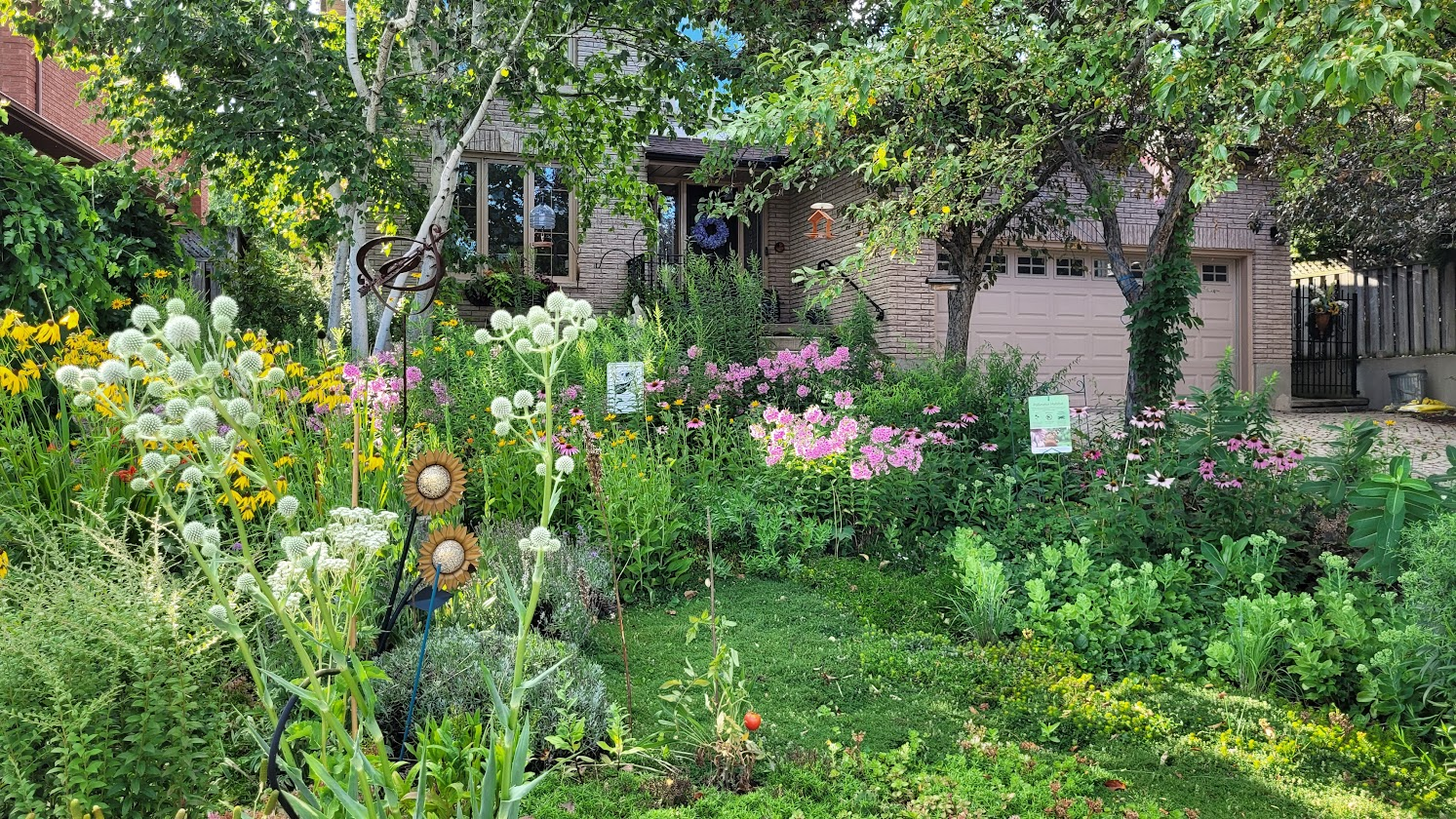Though the 100 Women Who Care meet quarterly to collectively impact their community by numbers, both in terms of the number of people coming together and in the dollars they donate, this week’s meeting was special: it was 100 Women Who Care Burlington’s tenth anniversary, and it was celebrated with food, drink, guest speakers, and tears.
Over 100 people attended the event on Jan. 17 at the Burlington Golf and Country Club: members of 100 Women Who Care Burlington, North Oakville-Burlington MP Pam Damoff, Burlington MPP Natalie Pierre, city councillors Rory Nisan, Paul Sharman, and Lisa Kearns (who is also one of the 100 Women), and a number of local charities who have been on the receiving end of the 100 Women’s donations in the past.
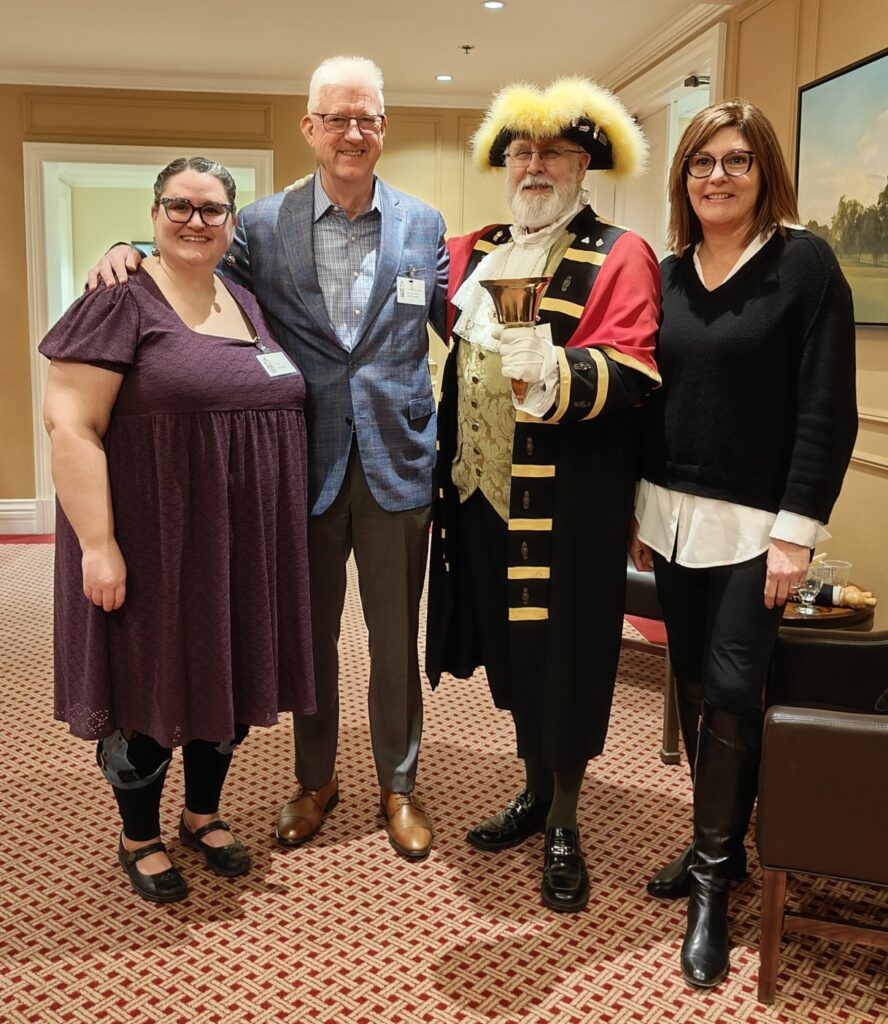
Tables were set up around the perimeter of the room for the charities to offer information and chat with attendees about their work and the impact of the 100 Women donation on their organizations. These “chosen charities,” to use 100 Women Who Care lingo, included the first-ever recipient of the chapter’s generosity, Burlington Humane Society, as well as charities that address food insecurity, such as the Burlington Food Bank, Wellington Square Community Food Programs, and the Compassion Society; charities that offer help with housing, like Shifra Homes, Support House, and Home Suite Hope; charities aimed at helping youth, such as the Darling Home for Kids, Danielle’s Place, and Dare To Be Youth; and more.
These 100 Women (now actually numbering 120) have helped over 30 charities in their decade of donations. The pandemic prevented just one meeting from happening until the group switched to virtual meetings, so instead of having helped 40 charities over their ten years of quarterly meetings, the total number is (a still very impressive) 39, with some of those charities being chosen twice over the years.
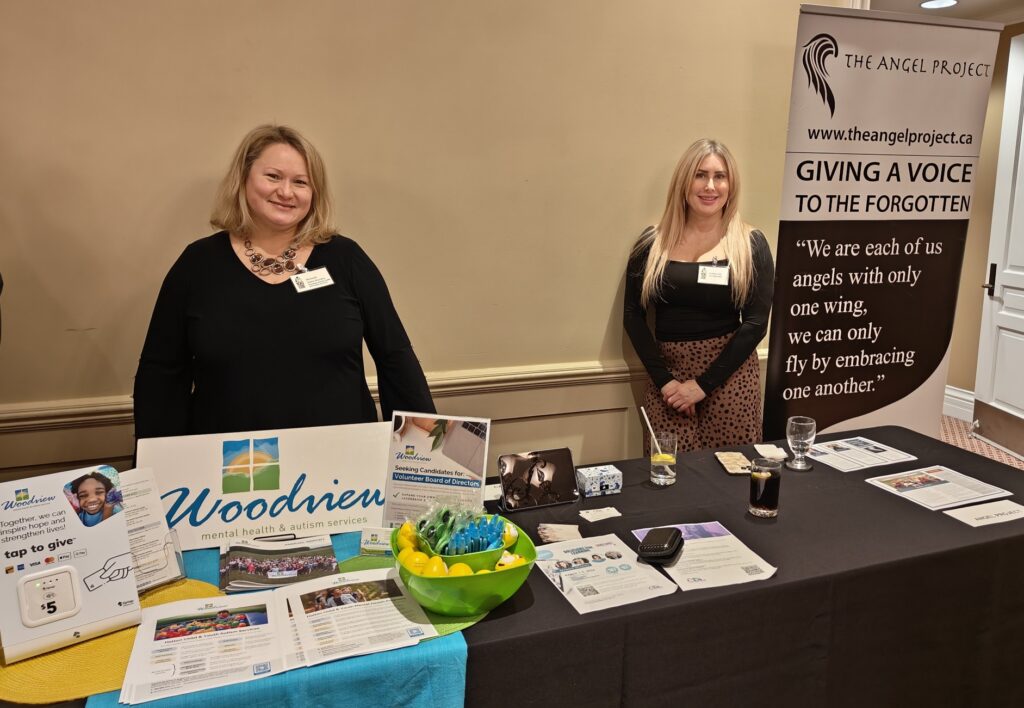
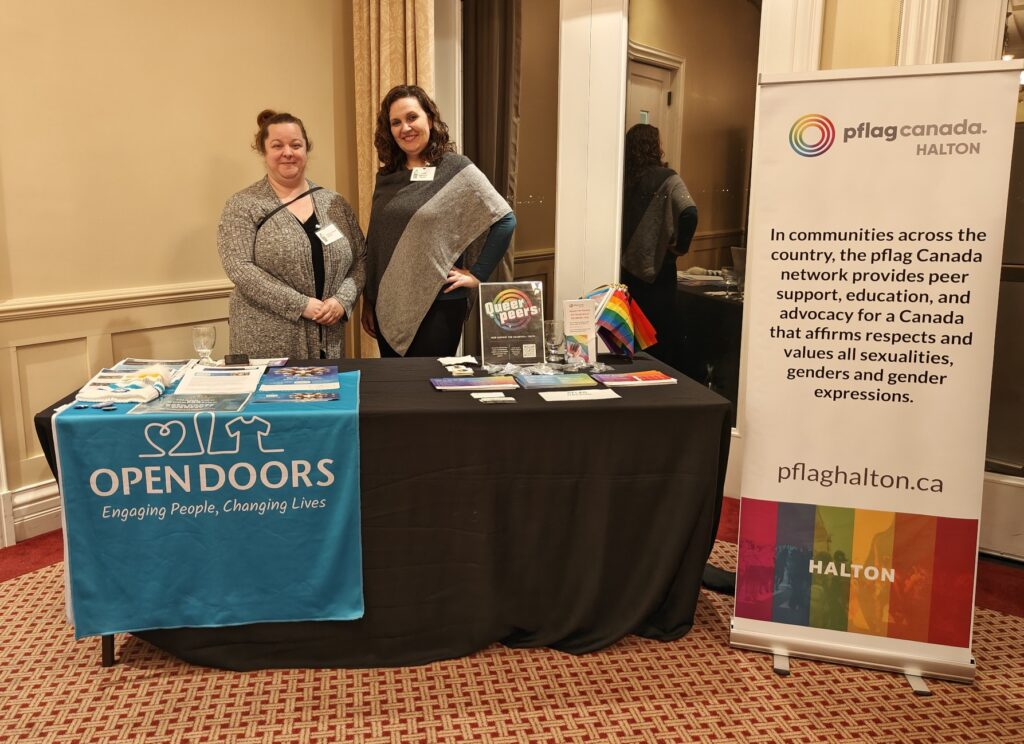
Because each person (woman, non-gender-conforming person or two-spirited person) or team commits to donate $100 to the group’s charity of choice at each meeting, the charity of choice receives a cash injection of thousands of dollars.
On Wednesday, town crier David Vollick started the evening’s official program off with gusto, providing a note of ceremony to the proceedings.
Co-founder Marion Goard stepped up to talk about the early days of 100 Women Who Care Burlington. It was an article on another chapter of 100 Women Who Care in the Hamilton Spectator that started it all, piquing Goard’s interest. “Being a Junior Leaguer, I knew it was something I was interested in and it was something I could do in Burlington,” Goard explained. She reached out to the London chapter for more information.
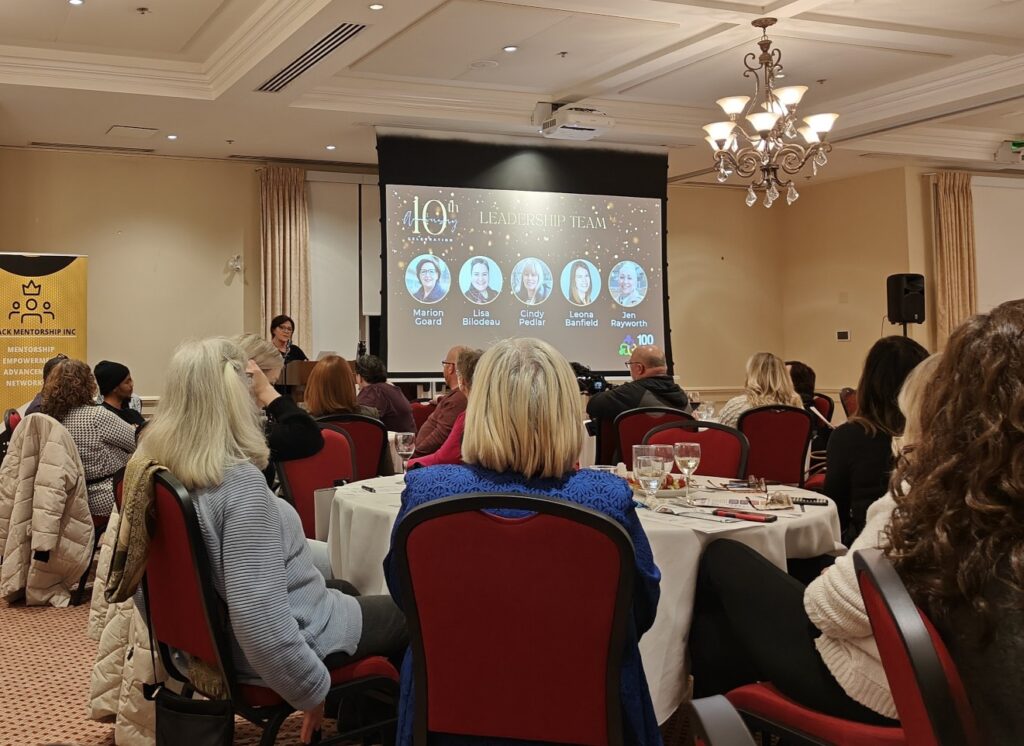
As it turned out, Goard was not the only Burlington woman who had contacted the London 100 Women Who Care after reading that article. The London chapter connected Goard with Pat Grant; together, they founded the Burlington chapter of 100 Women Who Care. The first meeting was held on January 2014 with a group of 29 women, and the Burlington Humane Society was voted as the first charity of choice, receiving that first donation of $2900.
Before 2015 had rolled around, the group had swelled to over 50 members, so chosen charities received donations of over $5000; by April of last year, donations began exceeding $10,000 from each meeting.
Not counting the donations from this week’s meeting, the group has donated a total of $254,775 over the last 10 years.
Though this meeting was a celebration, it was also operating with its usual goal in mind of impacting a local charity. Accordingly, presenters from the three nominated charities stepped up.
First up was Comfort Bears, who provide cuddly teddy bears to children facing trauma, which might be a serious illness, a death in the family, home violence, or other traumatic situation. A personal story of the impact of Comfort Bears was given by Nicole Raso, whose son Luca was diagnosed with a Wilms tumour, a type of cancer, in 2022, when he was 3 years old. Through chemo, surgery, more chemo, and radiation, Luca’s bear helped him cope. Raso says, “A lot of these kids are very young. A bear can make a world of difference, it becomes their buddy…their little friend.” As Raso spoke, Kearns’ earlier words about tears usually being shed at 100 Women meetings proved prophetic. (Luca, Raso says, is “doing great” now.)
Next up was HMC Connections (Halton Multicultural Council; Executive Director Kim Jenkinson says they’re called “HMC Connections” for branding purposes). HMC Connections is a settlement agency, helping newcomers to Canada get housed and settled in their new home. Jenkinson told the story of a recent refugee from Ukraine, who arrived with her husband and two young children. Within weeks of their arrival, she gave birth to twins. With a husband too traumatized by the horrors of war to work, she quickly had to adjust to Canada. She first found a volunteer position at a daycare, and quickly picked up English; when an assistant cook position came up in that same daycare, she took that job, and, says Jenkinson, “works there to this day.” The challenges of refugee life led to family breakdown, and HMC Connections have stepped in to help her as she struggles to financially provide for her four young children. That, says Jenkinson, is where donations go: directly towards helping refugees with necessities like food and clothing.
The final nominee was Autism Dog Services, based in Brampton, but who provide dogs to kids with autism across most of southwestern Ontario, including Halton. The organization is now starting to serve adults as well. Terri Mason spoke on behalf of the organization, bringing Hercules up to the podium with her. Hercules is the service dog of her 12-year-old son, so Mason understands first-hand how these dogs can change the lives of families. Autism Dog Services provides intensive, specialized training for the dogs, then places them with families. A trial period is part of their service, to ensure the right fit between dog and child. The dogs help their kids with safety, independence, and provide companionship; they are trained, says Mason, “to be an anchor for kids with autism…to help them feel safe and calm.” Dogs are trained to provide deep pressure for kids who need that type of support; they will sleep in the same bed as their children, as children with autism often have “major sleep disorders…a dog can allow an 8-year-old [for example] to get out of mom and dad’s bed,” explains Mason.
Autism Dog Services currently has 43 puppies in training, but, says Mason, to meet the needs of the waitlist, they really need another 25 to 30 dogs this year. And it costs about $25,000 to $30,000 to raise, train, and support each dog.
Before breaking to vote on which of the three nominated charities they’d like to choose, Shannon Shuell of Open Doors, the November 2023 chosen charity, spoke on the impact the 100 Women Who Care donation had made on their organization. That $11,750, says Shuell, allowed Open Doors to serve over 250 meals in one day in the holiday period, and stock the shelves of their community market.
Finally, the big moment. The chosen charity was revealed to be Autism Dog Services.
However, thanks to sponsorships from Megaloid Laboratories and Smith’s Funeral Home, both HMC Connections and Comfort Bears received $1500. Bilodeau noted that 100 Women Who Care Burlington would happily welcome similar sponsorships for any future meetings.
The evening ended without much fanfare, but with Bilodeau encouraging members to use the QR code on the screen to honour their donation commitment so that she “didn’t have to hound people.” And so the night ended, not with a flurry of pats on the back, but with thousands of dollars being donated to Autism Dog Services and quick final chats before heading out into the cold; a fitting end for this group, who, as Kearns, says, are “doing extraordinary things quietly.”

